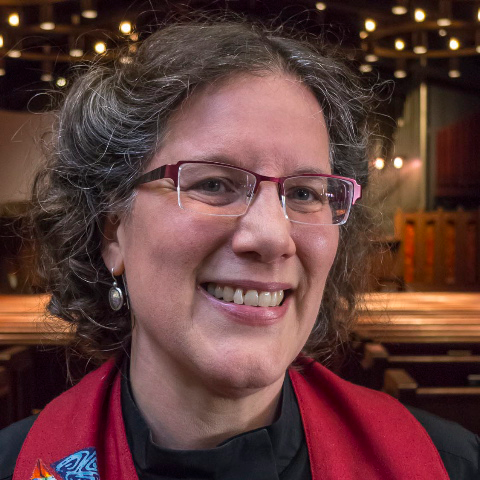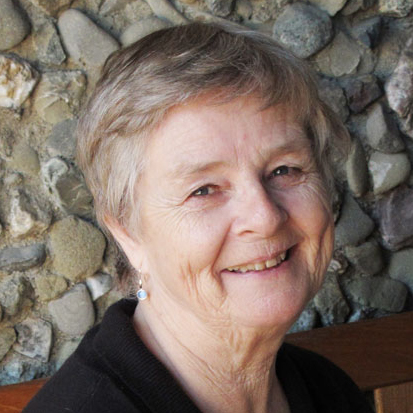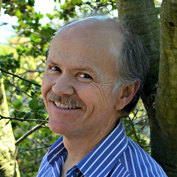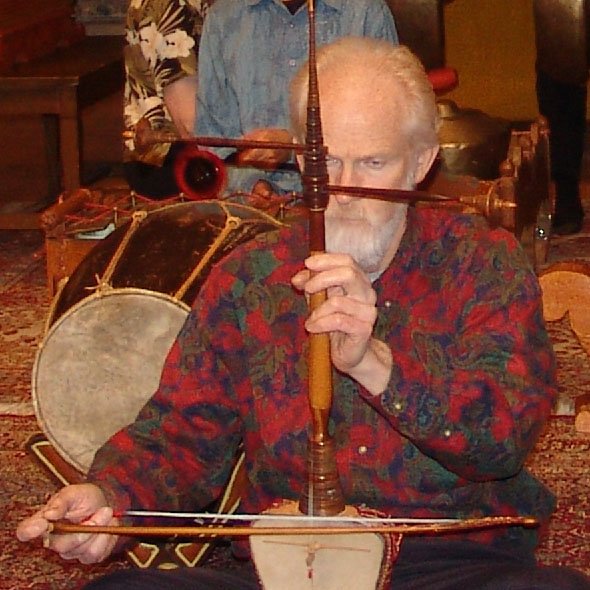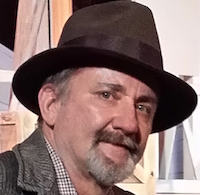Water is life giving. Out of the sea came life. Out of birth waters, we’re born.
The human body is more than sixty percent water. The earth is more than seventy percent water. Sweat, tears, rain can be healing. Water is a basic element of life.
So, no surprise that water is central to the practices and beliefs of many religions.
Water cleanses; water refreshes. Without water there is no life.
Visit a Buddhist temple and you often see seven small bowls of water offered before a statue of the Buddha.
At the Sikh Golden Temple in Amritsar in northern India, worshipers walk barefoot across a warm stream of water to cleanse their feet as they enter the holy grounds.
Inside there is a pool for cleansing and refreshing the body and spirit.
Hindus see all water, especially rivers, as sacred. The worshipper cups the hands and pours water back into the river, while reciting morning prayers. Pilgrimages are made to rivers, especially the Ganges. Bodies are cremated on the banks of rivers, and the ashes released to the river.
In Islam worshippers wash hands and feet before prayer.
Ritual washing is part of the Jewish tradition, and central stories tell of the flood which washed all the earth clean and of crossing the Red Sea to the promised land.
In North American Indian religions, water in the form of a vapor bath cleanses the soul.
In creation stories, water sprinkled on stones, on dry bones, brings forth life.
This congregation, as well as most Unitarian Universalist congregations, has an annual ceremony where we bring water from places precious to us. The water is collected in a common bowl and becomes our holy water. We bless babies with this water.
When we enter this building, we are greeted by trees and a pool of water.
From this hilltop, we look out to San Francisco Bay, those living waters.
In the Christian tradition, baptism with water is central, and we have today this story of the Samaritan woman at the well.
The story is told in the book of John. Biblical scholar Marcus Borg says the stories in the Book of John are not as historical as the stories in the books of Matthew, Mark and Luke. John’s stories are more metaphorical. The question to ask is what does the story mean?
This conversation between Jesus and the Samaritan woman is the longest conversation recorded in the Bible between anyone and Jesus.
The conversation is held at a village well at noon. At morning or dusk, cooler times of day, women gathered at the well. This woman is going against the customs of her time.
Jesus’ disciples have gone off in search of food. So Jesus and the woman are alone.
In Biblical times, meetings and conversations like this between a woman and a man were uncommon.
Their conversation breaks cultural norms, bridges gender separations. This is also a conversation between a Jew and a Samaritan. Hostilities existed between these groups of people. Their conversation bridges ethnic and religious separations.
He asks her for a drink from the well. They have a conversation about water and metaphorical water.
He asks her to get her husband. She responds that she doesn’t have one. He affirms her speaking the truth. They acknowledge her five husbands. I don’t want to hear him judge her. For this to be a story worth telling, his presence must be compassionate.
If this is a metaphorical story, what is the meaning of five husbands? She must know a lot about loss, disappointment, heartbreak, maybe abandonment or rejection. If she is like the rest of us, she longs to love and be loved. She must know a lot about loss and unfulfilled longings, unquenched thirst. Maybe she’s known a lot of deaths. Maybe she has been looking for love in all the wrong places. She comes to the well with her empty jar, a symbol of her life.
So much about the customs of the times might tell her she is a second class citizen.
He sees the emptiness and ache in her soul. He offers her attentive, caring presence.
He sees her. He quenches her longing to feel worthy, seen, loved.
They engage in conversation. Theirs is a profound discussion of theology. She says her ancestors worshiped God at this mountain, but that the Jews insist Jerusalem is the place for worship. He says the time is coming when what you’re called and where you worship won’t matter. What matters is that you are honest with yourself and with God.
The way to worship, he says, is in spirit and in truth.
Because she has spoken the truth of her life, their conversation is worship; the ground upon which they meet is holy ground.
He says there is something of spirit which quenches people’s deep thirst. She knows the truth of his words. He sees her, and she sees him.
The story says regardless of the past, of old hurts, pain, loss, mistakes, there is hope, meaning, new possibilities.
There is living water always available, ready to spring forth in you.
Their meeting shows what is possible in human relating.
This story speaks of our thirst for meaning. There’s a deep thirst of the soul, a longing and yearning for something more.
We try to satisfy that longing. Maybe we accumulate more stuff, more power, drink more alcohol, take drugs, eat, keep busy, go from one relationship to another. None of these fully satisfy. Each can leave you wanting more.
The story also says don’t say there is no water to satisfy your thirst.
Poet Denise Levertov addresses this in her poem The Fountain.
Don’t say, don’t say there is no water
to solace the dryness at our hearts.
I have seen
The fountain springing out of the rock wall
and you drinking there. And I too
before your eyes
found footholds and climbed
to drink cool water.
The woman of that place, shading her eyes,
frowned as she watched – but not because
she grudged the water,
Only because she was waiting
to see we drank our fill and were
refreshed.
Don’t say, don’t say there is no water.
That fountain is there among its scalloped
green and gray stones,
It is still there and always there
with its quiet song and strange power
to spring in us,
up and out through the rock.
No matter the rocky, hard places in which you find yourself. Within you, there is water with its quiet song and strange power. Living water, like an ocean of love, is there and always there ready to spring in you.
That’s not the end of the story. The woman came to the well at times when others did not. If she felt separate from the people of her village, she now seems connected…ready to be in relationship with them. She returns to village to be in community, to share with her neighbors this meeting, this conversation. She is filled with her own worth and dignity and her place in creation and to share that with others.
The story tells us that spirit, like living water, is in us, can spring forth in any moment.
that we may be life-giving for ourselves and others.
I want people here to gather round our atrium fountain or at the coffee table and speak honestly and compassionately with one another. Tell the truths of our lives. See each other’s dignity and worth. Be life-giving. Whenever we gather, morning, noon, or evening, this ground upon which we meet is holy ground.
Twenty of us gathered Thursday evening to reflect on how this congregation is life-giving. Some of us felt uneasy with saying this church “saves lives.” Being saved reminded some of us of people who believe that just because of who we are and what we think about life that we are condemned and our souls, our lives need to be saved.
A woman, who had participated in just one Sunday service here, offered, “You never know the difference a smile can make. You don’t know who is struggling. Your warm welcome may be lifesaving.”
She named the member’s story she had heard. Twice in the member’s life she lost a home, a job, a relationship. She had sat in the back of the church and wept until love filled her up again and she could go on.
We can help one another go on and that is life-giving, life-saving.
On Thursday evening another woman shared what she wrote, “I have found an extended family here, an extended family that embraces and wholly accepts my same-sex marriage. Why is that special? Every day there is something in the news or in an ‘off hand’ statement that tells me I am different and a second class citizen. It is a joy, a heart-warming gift to ease that touch of pain that can so easily take the fore-front in my thoughts or send me on a path of diminished self-worth….This community, the Sunday services, the individuals who just love me hold the space for my true self; [for] my inherent worth and dignity.”
Thursday evening’s honest sharing was a meeting on holy ground.
May how we speak and act here affect how we are everywhere. Like the woman at the well, we are meant to be in community. Come to the well; go out into the world. Thursday night other members of the congregation were in Pittsburg for a meeting with community leaders and the Contra Costa sheriff to support respectful treatment of immigrants. We want worth and dignity, and we offer others worth and dignity, in this case, immigrants and their families. The worth the spirit of life calls us to offer ourselves,
we are to offer everyone.
Each time we’re here we look out at the beautiful bay. We look out to water and bridges. Just as there are water and metaphorical water, there are bridges and metaphorical bridges. Bridges are invitations to reach beyond gender, age, abilities,
ethnicities, and religions to make real connections with people. The view here is a constant invitation to bridge differences, to reach out and connect, to live more fully and abundantly like an “artesian spring within, gushing fountains of endless life” (John 4:14, The Message Bible).
Ocean of Love, Source and Spirit of Life, spring forth in us so we may be life-giving for ourselves and for all beings. Amen.







